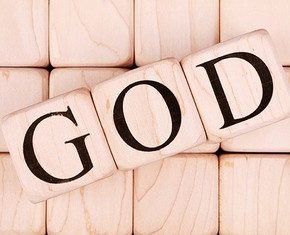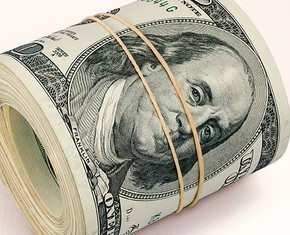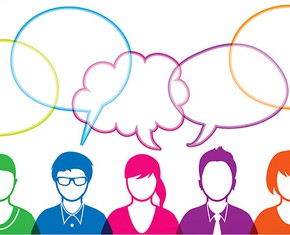The views expressed in our content reflect individual perspectives and do not represent the authoritative views of the Baha'i Faith.
Media outlets today are brimming with riveting conversations about racism, sexism, and classism.
In fact, I would say social media has revolutionized the way we interact with oppression. While sometimes the platform for relentless debate and mockery, a great number of social media users have put serious thought into reflecting on our harrowing history, analyzing our current culture, and trying to figure out what we need to create a better future.
Accountability emerges as one of the major themes in this wider dialogue. People ask questions like, “why is it so difficult for many of us to admit our privilege?” and “how can we engage increased numbers of people in holding themselves accountable for their actions?” Within this dialogue it seems nothing goes unquestioned—even the definition of accountability itself continually undergoes assessment.
Amongst the myriad of questions in this dialogue, one has become particularly common: is recognizing one’s privilege actually fruitful? Some are not sure it will even make a real difference in the grand scheme of things.
Relevant to this question, the Baha’i teachings advise everyone to adjust their internal thoughts, behaviors, and attitudes—to constantly bring themselves to account:
Set before thine eyes God’s unerring Balance and, as one standing in His Presence, weigh in that Balance thine actions every day, every moment of thy life. Bring thyself to account ere thou art summoned to a reckoning … – Baha’u’llah, The Proclamation of Baha’u’llah, p. 51.
Baha’is believe as our individual behaviors affect the larger environment, the larger environment simultaneously affects us. In this sense, whether our institutions are characterized by a culture of accountability or not changes the way we operate in our personal lives.
Holding ourselves accountable involves much more than simply recognizing the privilege we might have at any given moment. If each person is somehow linked to the larger whole of humanity, and it is clear that the society we live in has many deeply rooted issues, what also becomes clear is that it requires continuous work to avoid internalizing the problematic tendencies of this day and age. As long as our environment contains these conflicts, it will demand our ongoing attention towards the task.
The challenge then becomes how can we elevate the standards we have for ourselves if we know that we are regularly exposed to unhealthy standards? Does being interconnected with our environment mean that we are doomed?
Even though it seems clear that the world is filled with plenty of turmoil and there is, in fact, a lot we have to be careful not to internalize, Baha’is believe that although we are deeply affected by the world around us we also have a higher spiritual nature that gives us the ability to progress beyond our circumstances:
In man there are two natures; his spiritual or higher nature and his material or lower nature. In one he approaches God, in the other he lives for the world alone. Signs of both these natures are to be found in men. In his material aspect he expresses untruth, cruelty and injustice; all these are the outcome of his lower nature. The attributes of his Divine nature are shown forth in love, mercy, kindness, truth and justice, one and all being expressions of his higher nature. – Abdu’l-Baha, Paris Talks, p. 61.
While things often seem bleak as the turmoil and pain we face seems to spread, Baha’is believe that through our struggle humanity will simultaneously progress:
This spirit of solidarity has continued to spread over the decades, and today its effect is apparent in a range of developments, from the rejection of deeply ingrained racial prejudices to the dawning consciousness of world citizenship, from heightened environmental awareness to collaborative efforts in the promotion of public health, from the concern for human rights to the systematic pursuit of universal education, from the establishment of interfaith activities to the efflorescence of hundreds of thousands of local, national and international organizations engaged in some form of social action. – The Universal House of Justice, To the Baha’is of the World, April 2006.
Though slow and sometimes seemingly undetectable, Baha’is believe that the oneness of humanity will continue to spread across our globe. Perhaps, accountability does not only mean recognizing the toxic, damaging habits we have internalized, but also aligning ourselves with this global movement towards unity.
















Comments
Sign in or create an account
Continue with Googleor